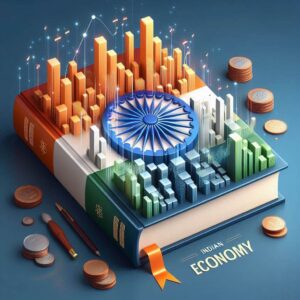Introduction to Indian History in Competitive Exams
Indian history plays a pivotal role in various competitive exams such as UPSC, SSC, and other government job exams. The subject’s comprehensive understanding is crucial for aspirants aiming to excel in these exams, as history questions can significantly influence overall scores. Indian history encompasses a broad spectrum of topics, including ancient civilizations, medieval dynasties, colonial periods, and post-independence events. These examinations often explore cultural heritage, the evolution of societal norms, and the contributions of significant personalities, making historical knowledge indispensable for aspirants.
In competitive exams, history questions typically fall into three broad categories: factual, analytical, and inferential. Factual questions test foundational knowledge, such as dates, events, and personalities. Analytical questions require understanding the causes and impacts of historical events, fostering a deeper comprehension of historical processes. Inferential questions, on the other hand, assess the ability to interpret and draw conclusions from given historical data. Mastery of these question types not only demonstrates historical acumen but also sharpens critical thinking and analytical skills, valuable across the full spectrum of the exam.
Given the extensive scope of Indian history, selecting the right books and resources becomes crucial for effective preparation. Quality reference materials not only cover the curriculum comprehensively but also present the information in an organized, accessible manner conducive to learning and retention. Moreover, well-chosen books often offer practice questions and mock tests, enabling aspirants to gauge their proficiency and manage their preparation time more effectively.
Thus, a curated selection of essential history books forms the backbone of successful exam preparation. It equips candidates with the knowledge required to navigate the often dense and detailed questions with confidence, enhancing their chance of scoring well and ultimately securing their desired position. In the following sections, we will delve into some of the most recommended books for Indian history that are indispensable for competitive exam aspirants.
Top Book Recommendations for Ancient Indian History
Preparing for competitive exams that cover Ancient Indian History requires access to well-researched and comprehensive resources. Two highly recommended books for achieving a thorough understanding of this period are ‘Ancient India’ by R. S. Sharma and ‘A History of Ancient and Early Medieval India’ by Upinder Singh.
‘Ancient India’ by R. S. Sharma provides an in-depth exploration of the early stages of Indian civilization, starting with the Indus Valley Civilization and extending through the Mauryan and Gupta empires. Sharma, a renowned historian, brings a detailed yet accessible approach to this extensive subject. His analysis on the socioeconomic and political structures of ancient India is particularly beneficial for understanding the complexities and continuities that shaped the subcontinent’s early history.
Upinder Singh’s ‘A History of Ancient and Early Medieval India’ is another indispensable resource. Singh, a distinguished historian, presents a meticulously documented chronology that spans from prehistoric times to the early medieval period. Her work integrates archival evidence, inscriptions, and contemporary research to offer a nuanced perspective of various historical periods. This book is particularly valuable for its visual aids, including maps and illustrations, which help in visualizing the past more effectively.
These books are not only comprehensive but also written by scholars with impeccable credentials in the field of Indian history. By reading these works, students can gain a holistic understanding of Ancient Indian history, which is critical for success in competitive exams. To utilize these books effectively, it is advisable to complement them with regular note-taking, summarizing key chapters, and discussing complex topics with peers or mentors. Engaging in such practices can enhance retention and comprehension, thus preparing you thoroughly for the exams.
In summary, ‘Ancient India’ by R. S. Sharma and ‘A History of Ancient and Early Medieval India’ by Upinder Singh stand out as essential texts for anyone serious about mastering the ancient period of Indian history. Their scholarly yet accessible approach makes them indispensable tools for both understanding and excelling in competitive exams.
“`html
Top Book Recommendations for Medieval Indian History
When delving into the medieval period of Indian history, it is crucial to choose resources that offer comprehensive coverage, analytical depth, and alignment with modern competitive exam syllabi. Two standout reads in this regard are “Medieval India” by Satish Chandra and “Advanced Study in the History of Medieval India” by J.L. Mehta. These books not only provide detailed narratives but also cultivate a nuanced understanding of the era spanning from the Delhi Sultanate to the Mughal Empire.
Satish Chandra’s “Medieval India” is a seminal work, often recommended for its structured approach and in-depth analysis of political, social, and economic developments during the medieval period. The book meticulously covers significant events, rulers, and administrative systems, with particular emphasis on critical periods such as the establishment and decline of the Sultanate, and the rise of the Mughal Empire. Its comprehensive coverage helps in building a solid historical foundation, making it an essential tool for aspirants preparing for competitive exams.
Another indispensable resource is J.L. Mehta’s “Advanced Study in the History of Medieval India”. This extensive work is divided into volumes, each delving deeply into different facets of medieval history. The detailed discussions on political scenarios, cultural advancements, and the economic transformations during different reigns provide an enriching reading experience. Mehta’s thorough analysis and comprehensive coverage of the subject matter align well with the diverse needs of competitive exam aspirants.
These books not only align with the competitive exam syllabi but also serve as excellent references for those wishing to gain a broader and more insightful perspective of medieval Indian history. To optimize the study of such substantial content, it is recommended to create concise notes, focus on interconnected themes, and periodically review to reinforce retention. Cross-referencing different sources can also provide a holistic view, aiding in better understanding and recall during exams.
“`
Top Book Recommendations for Modern Indian History
Modern Indian history is a critical component of competitive exams, encompassing the British colonial period, the struggle for independence, and the post-independence era. To comprehensively prepare for this topic, several authoritative books can provide valuable insights and knowledge.
One of the most recommended books is ‘India’s Struggle for Independence’ by Bipan Chandra. This work offers a thorough analysis of the Indian independence movement from the 1857 revolt to the 1947 partition. The book meticulously details significant events, key figures, and underlying ideologies. By including perspectives of freedom fighters and political strategists, it enables readers to grasp the complexity and diversity of the independence movement.
Another essential read is ‘Modern India’ by Sumit Sarkar. In this book, Sarkar delves into the socio-political and economic changes that took place during British rule. He examines the evolution of nationalist thought, the emergence of new social classes, and critical events like the Swadeshi movement and the formation of the Indian National Congress. The text is invaluable for understanding the multifaceted nature of India’s modern history and the forces shaping it.
To effectively prepare for competitive exams, it is vital to focus on the prominent themes and notable events described in these books. Key areas include the policies and impact of British colonial rule, the various phases of the freedom struggle, contributions by eminent leaders like Mahatma Gandhi, Jawaharlal Nehru, and Subhas Chandra Bose, and the socio-economic transformations during this period.
Preparing for questions related to modern Indian history requires a strategic approach. It is advisable to create timelines of significant events, understand the cause-and-effect relationships, and be familiar with the contributions and ideologies of major personalities. Practicing past papers and engaging with multiple sources can also enhance retention and comprehension.
In essence, a robust understanding of modern Indian history, bolstered by reliable resources, is indispensable for excelling in competitive exams. Authors like Bipan Chandra and Sumit Sarkar provide the foundational texts that help aspirants navigate the intricate landscape of India’s journey to modernity.




Reviews
There are no reviews yet.